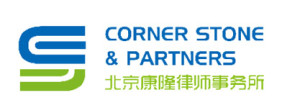The “red flag rule” was embodied for the first time in the Digital Millennium Copyright Act of 1998, an amendment to the US Copyright Act. This means that if the facts of an infringement of copyright (mainly an infringement upon the right of communication through an information network) are as apparent as a fluttering “red flag”, the internet service provider (ISP) concerned cannot turn a blind eye to such infringement, nor evade its liability on the ground of lack of knowledge or awareness.

Senior partner
Corner Stone & Partners
The red flag rule imposes upon ISPs a reasonable degree of duty of care, requiring them to refrain from ignoring very apparent infringing materials or links. Failing to do so, the ISPs shall be held subjectively at fault and jointly liable for direct infringements conducted by their service users or third parties, i.e., deprived of protection offered by the so-called “notice and takedown” exemption under the “safe harbour rule”.
Hence, it follows that the red flag rule excludes the application of the safe harbour rule, which requires “unawareness, or no knowledge” as a key element for it to come into play. In the circumstance that the infringing activity is apparent and easily identifiable, it will be impossible for ISPs to pretend to be “unaware” of it and resort to the safe harbour rule for protection. Failure to take down a link in such a case will lead an ISP to be held aware of the third party’s infringing activity, even without any notification from the right holder. These two rules are the two sides of a coin, one a general rule and the other a special one.
In other words, an e-commerce platform should, in general, not account for the activities of its users on the platform it provides. Where the infringing activity is very apparent, however, the e-commerce platform concerned should be held liable for its failure to act, or even deliberate connivance of the infringement. Further, not only an exception to the safe harbour rule but the red flag rule is also a necessary step preceding application of the safe harbour rule. In practice, priority should be given to consideration as to whether the red flag rule is applicable, and if in the affirmative, the safe harbour rule should be ruled out.
It is the author’s opinion that the red flag rule should be specified, to enhance its feasibility. For instance, as far as an infringement of copyright is concerned, the red flag rule should be applicable primarily in the following circumstances:
- Recommendation of popular or hot works. ISPs may make recommendations of popular TV and film productions, pieces of writing or music, etc., by means of placing them on the home page, setting up lists, tables of contents or indexes, providing descriptive paragraphs, or outlining contents. In this case, ISPs have a relatively higher level of duty of care to the ownership of such works. They are obliged to prohibit broadcasting or reproduction of the same in the absence of due authorization.
- Selection, compilation, organization and listing of stored materials. Infringement making use of the function of storage space is a current trend of online infringing activities. ISPs should be prevented from “engaging in infringement under the disguise of providing storage space”.
- Directing links to “specialized infringing websites”, many internet companies, to cut costs and avoid risks, build in third parties’ name websites especially for infringement, and then direct links from their sites to such specialized sites, with the aim of evading accountability for infringement.
- Repeated infringements. If the links to, or contents of, infringing materials have been deleted repeatedly, the ISP concerned is obliged to pay a higher level of care, and take necessary technical measures to prevent recurring links and uploads.
- Direct financial benefits. Where an ISP receives a financial benefit directly attributable to the works, performances or audio and/or video recordings provided by a subscriber, it should be held to a higher degree of duty of care for such a subscriber’s activities infringing upon a third party’s right of communication through the information network.
- Failure to take necessary measures within a reasonable time period. Where an ISP receives a proper notification provided by a right holder in the form of a letter, fax or e-mail, but fails to take such necessary measures as deleting, blocking or disconnecting links in a timely manner, it should be deemed to have actual knowledge of the infringing activity.
As an exceptional rule regarding infringement of IP rights conducted on e-commerce platforms, the red flag rule fills to some extent the gap of the safe harbour rule that lies in the format of “no liability after notice and takedown, and no notice, no takedown”. An e-commerce platform that fails to act, as long as it has actual or constructive knowledge of the infringing activity, and does not take the necessary step of notification, should be held liable jointly with the infringing party.
With the continual progress of China’s legal system, protection for right holders has been constantly enhanced, and requirements for e-commerce platforms raised. It is foreseeable that the system for IPR protection in e-commerce will be further improved to safeguard stable and smooth development of e-commerce.
Zhenkun Fu is a senior partner at Corner Stone & Partners

Corner Stone & Partners
1905, Tower B, Tian Yuan Gang Centre,
No. 2 Dongsanhuan North Road, Chaoyang District,
Beijing 100027, China
www.cornerstoneip.com.cn
Contact details:
Tel: +86 10 8446 4600 (ext. 808)
Email: zhenkun.fu@cornerstoneip.com.cn
























